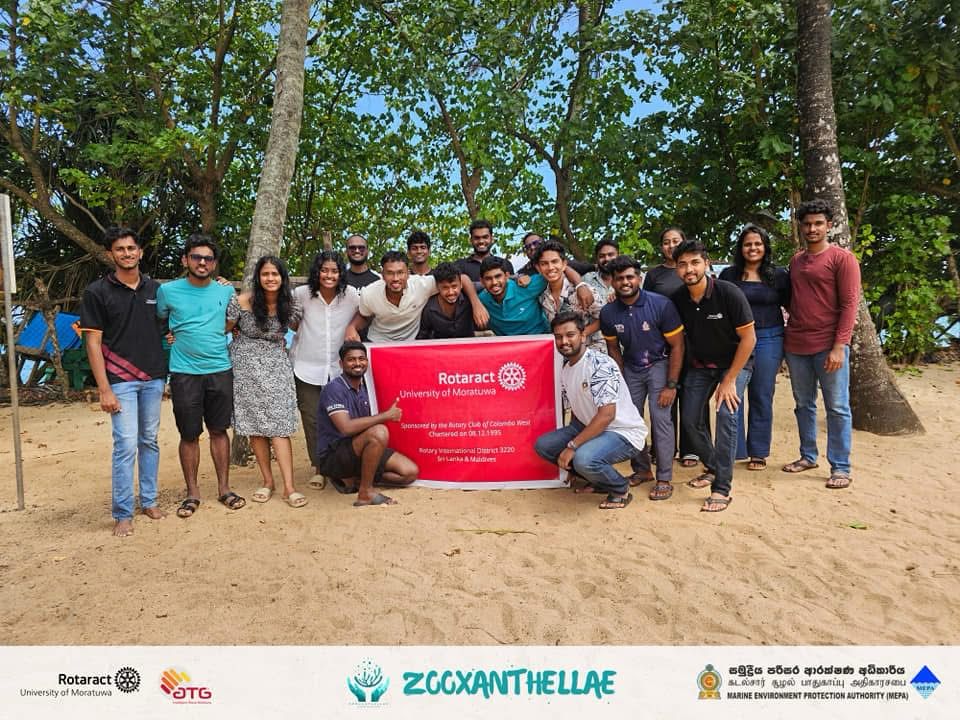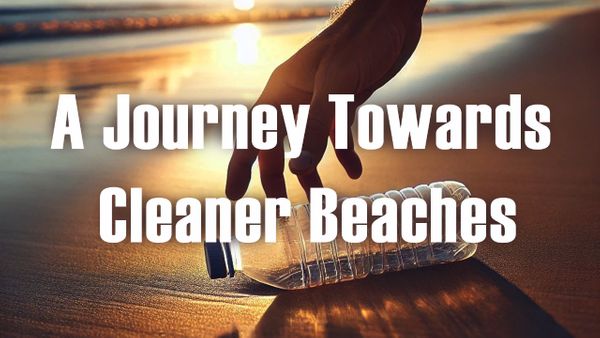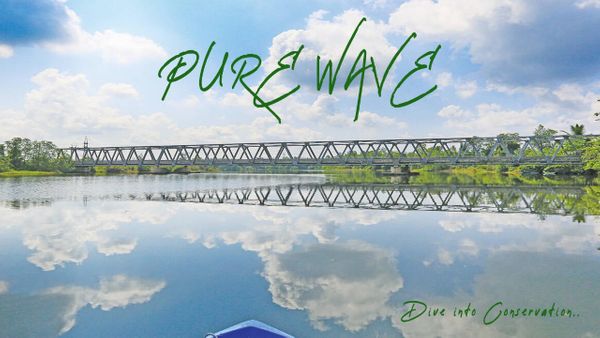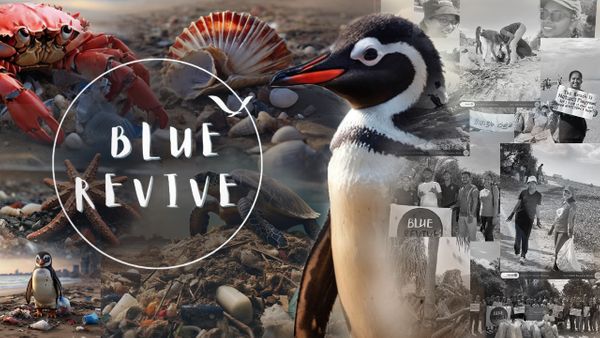Project Zooxanthellae: My Underwater Adventure with Rotaract
In mid-February, I embarked on one of the most unforgettable journeys of my university life - a coral transplanting project titled ‘Zooxanthellae’, organized by Rotaract Club of the University of Moratuwa. As someone who has always been enthusiastic about the ocean, this initiative didn’t just offer an adventure; it helped me find something worth working for - with hands-on training, a chance to work with like-minded individuals, and a strengthened passion for the underwater world.
The whole thing began with a series of weekend training sessions under the guidance of Mr. Sandun Wickramasinghe from the Marine Environment Protection Authority (MEPA). These sessions prepared us for the diving and snorkeling needed during the project. We first practiced snorkeling in Kapparathota, Weligama, and then trained for diving both in a pool in Ambalangoda and in the open waters of Mirissa Beach. The mix of controlled and open-water environments helped us build confidence and develop essential underwater skills.
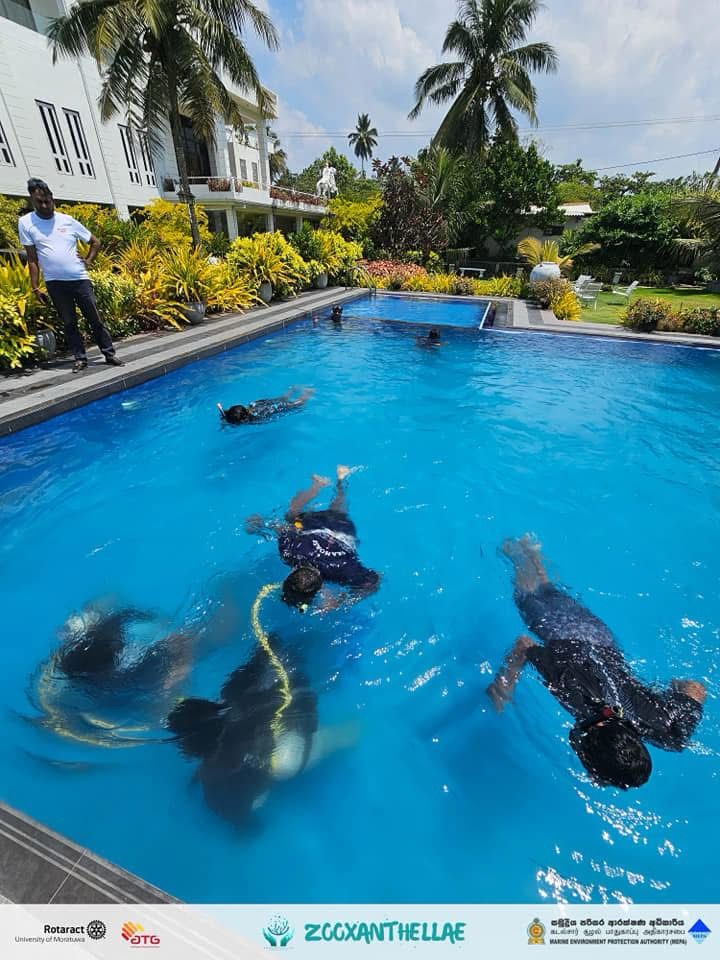
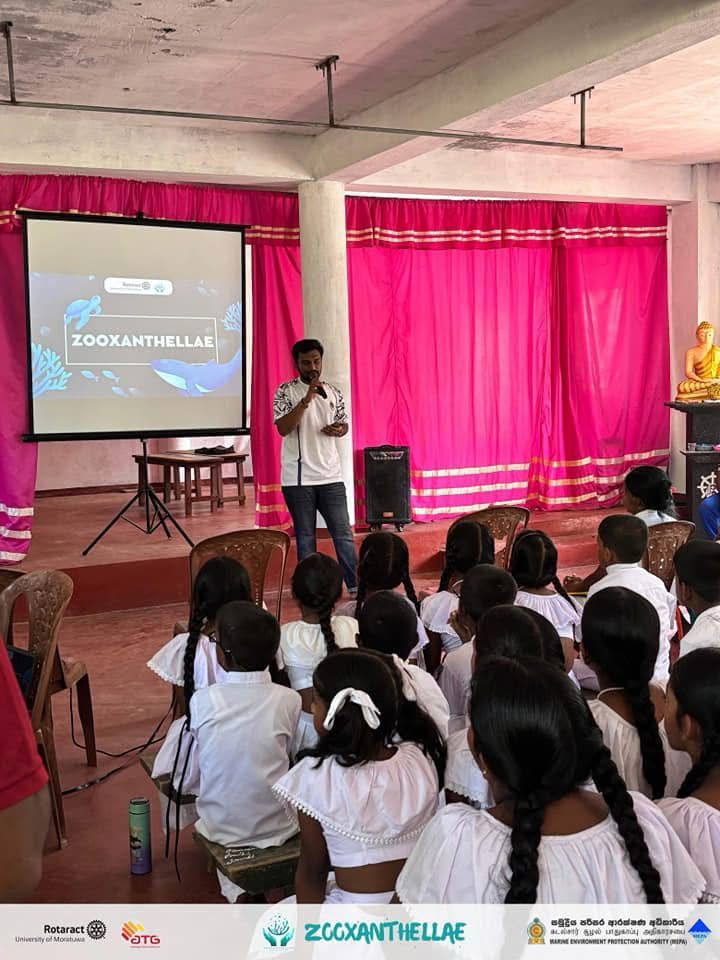
The aim of Project Zooxanthellae was as beautiful as it was important, to help revive Sri Lanka’s coral population, which has been destroying due to pollution, warming seas, and other environmental factors. This project has been carried out in past years as well, continuing Rotaract's commitment to marine conservation.
In April, the main project was launched in two key phases. The first phase involved the deposition of 10 boulders on the seabed at Mirissa, which would act as the new home for the transplanted corals. It was an intensive process that took us two days. Moving and positioning large boulders underwater is no easy task. It required coordinated effort, physical endurance, and a shared commitment to the cause. I even ended up with a deep cut in my leg, the scar of which I still have, preserving the memory of the challenge and dedication involved.
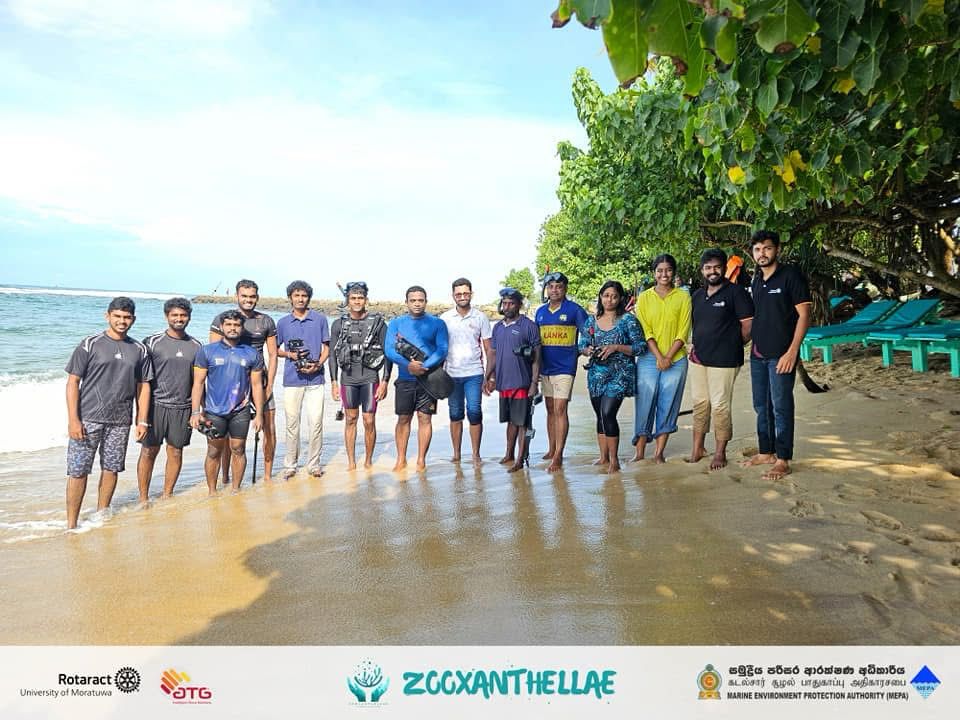
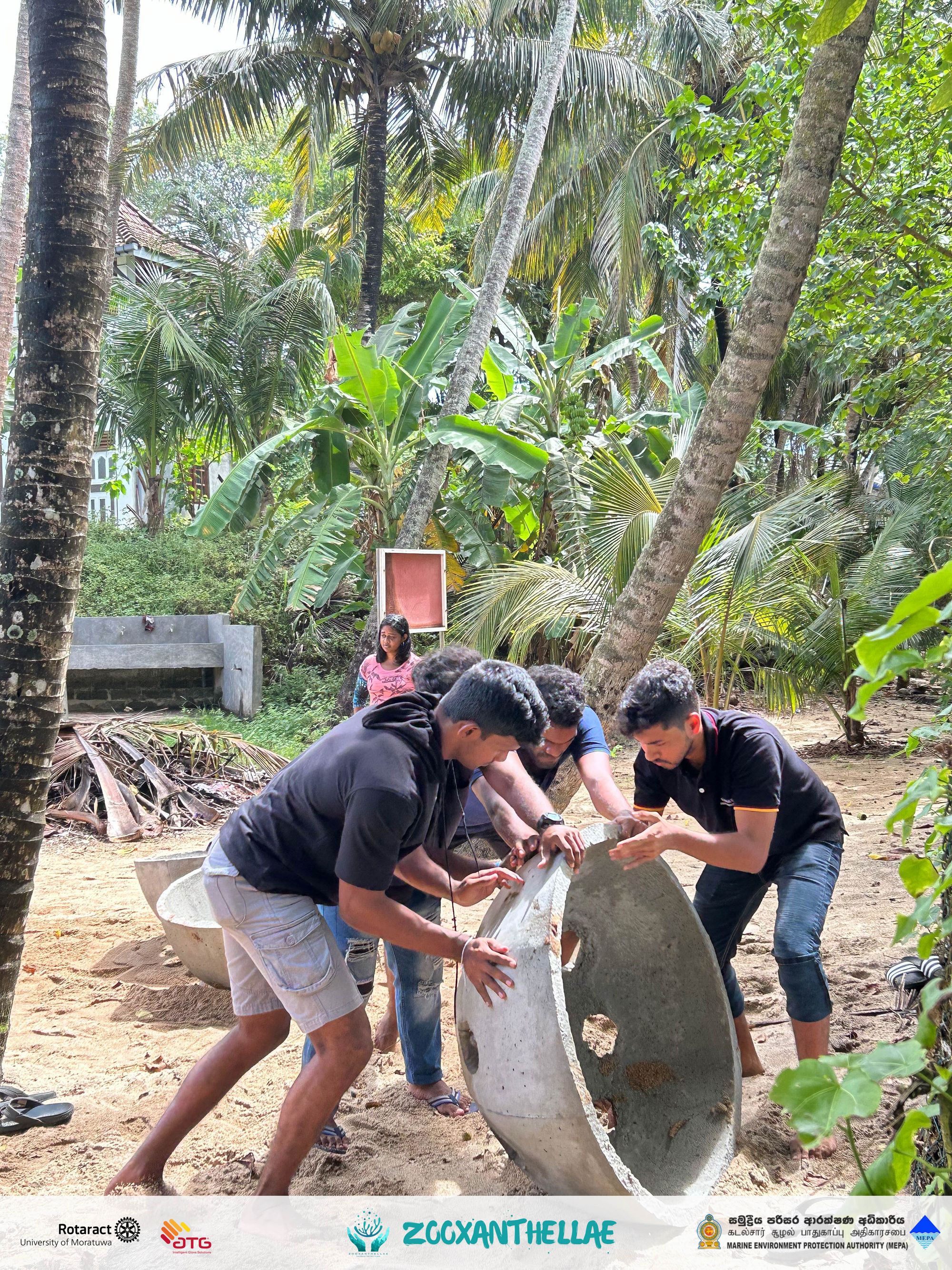
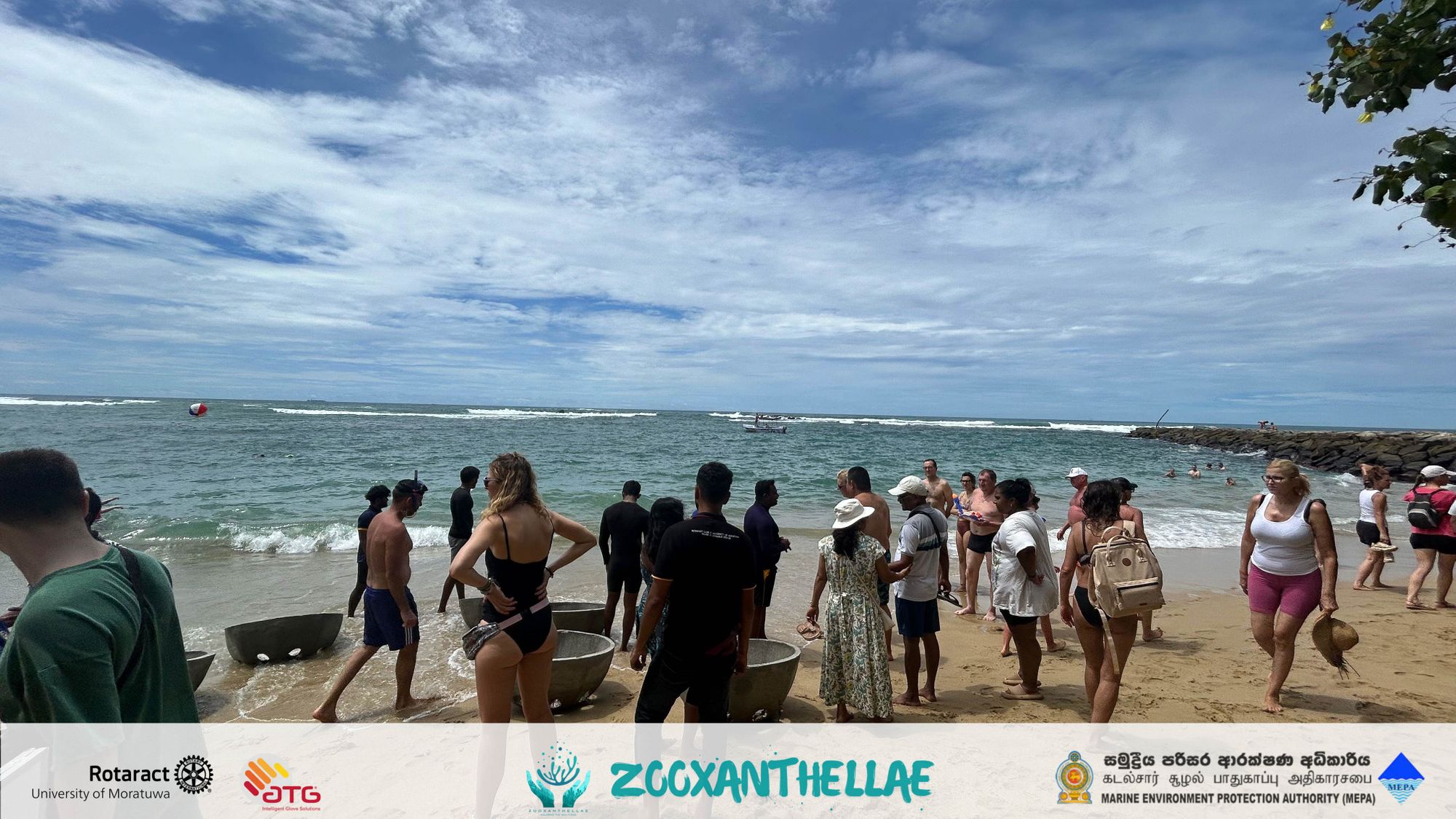
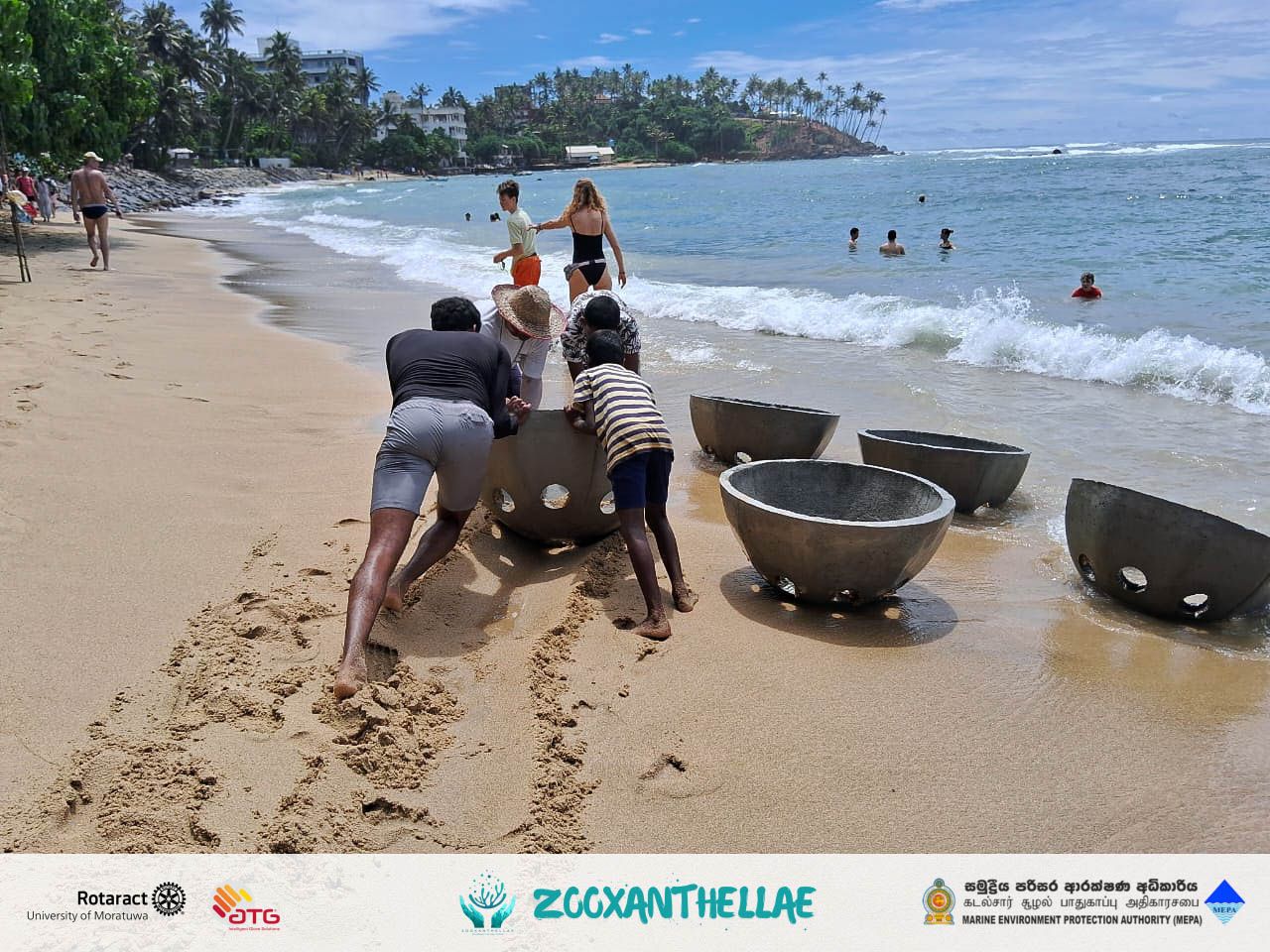
Once the boulders were in place, the second and most exciting phase began - Coral Transplantation.
As one of the four divers, I had the incredible opportunity to take part in this hands-on conservation effort. We carefully attached small, healthy coral fragments to the boulders using a special marine-safe adhesive. To ensure they stayed in place, we also tied them gently with tape. Watching those tiny corals being anchored to their new homes gave us all a sense of deep satisfaction and hope.
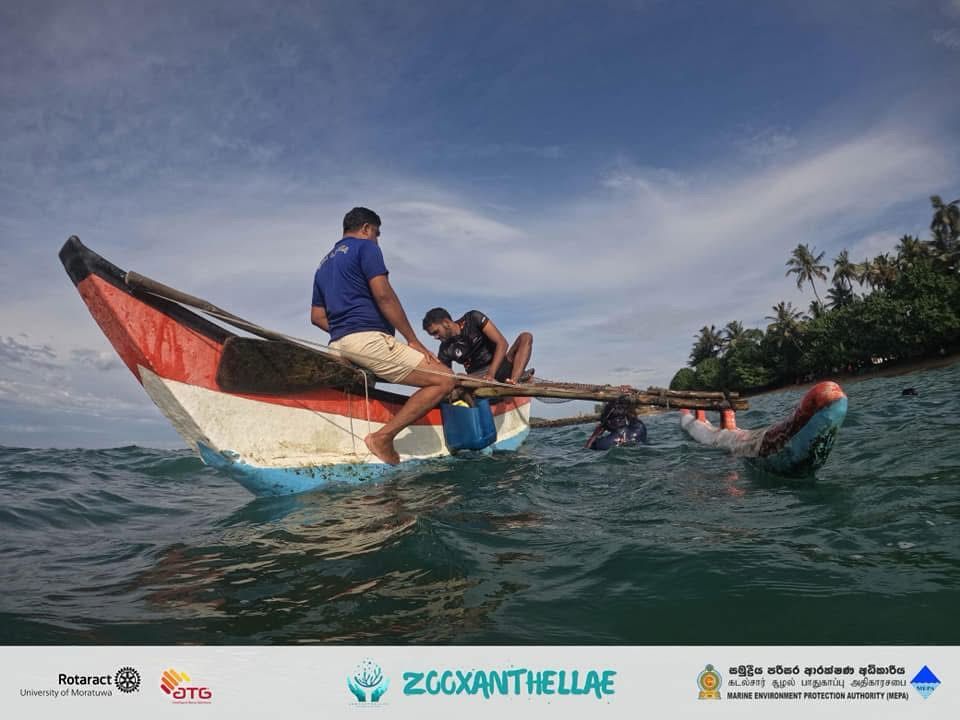
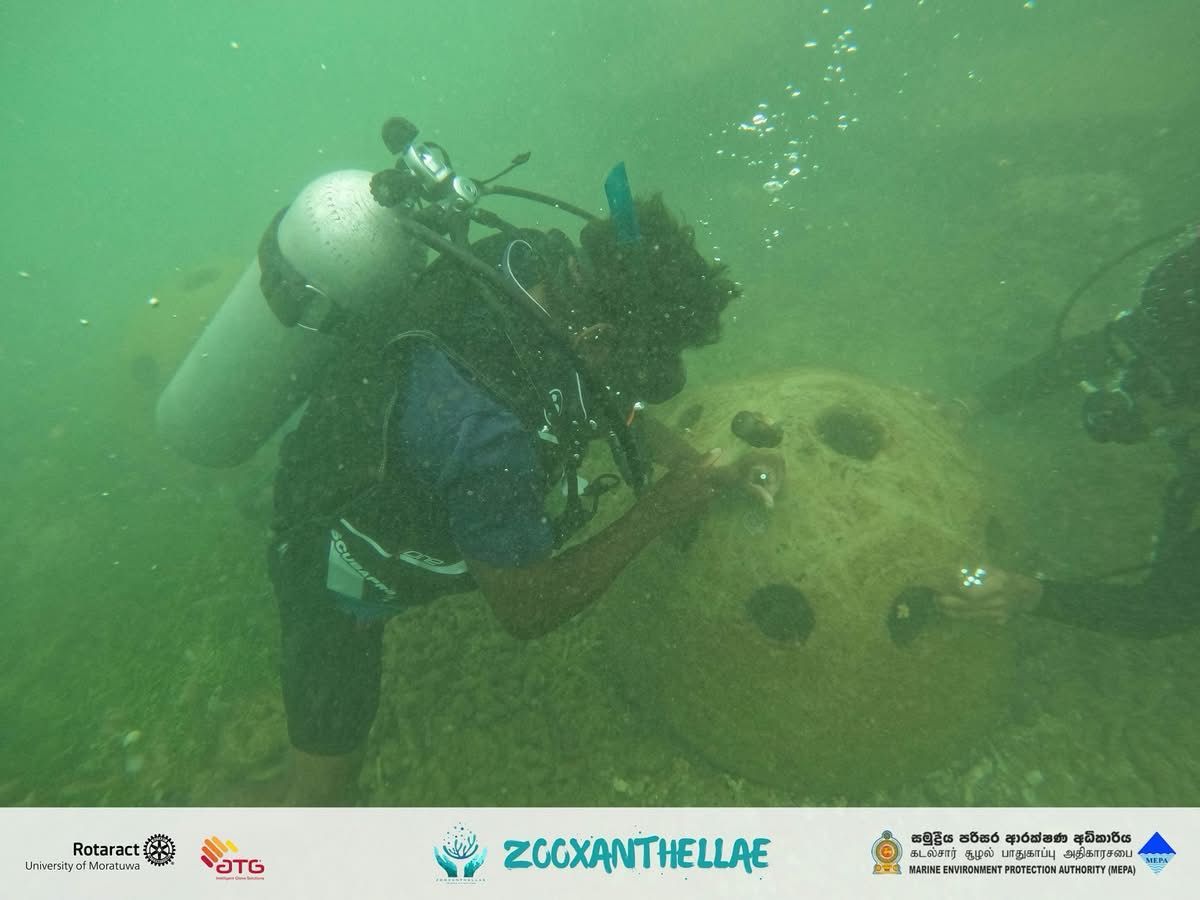
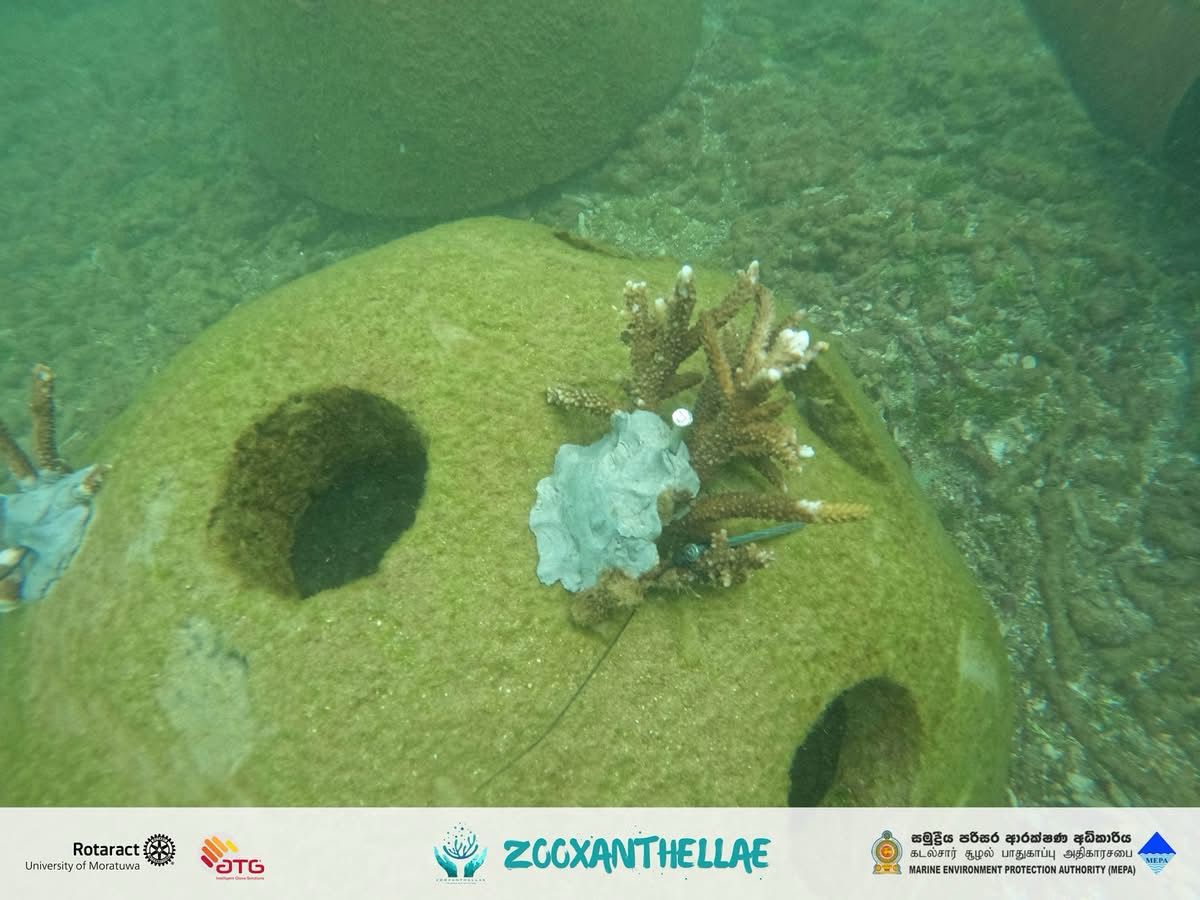
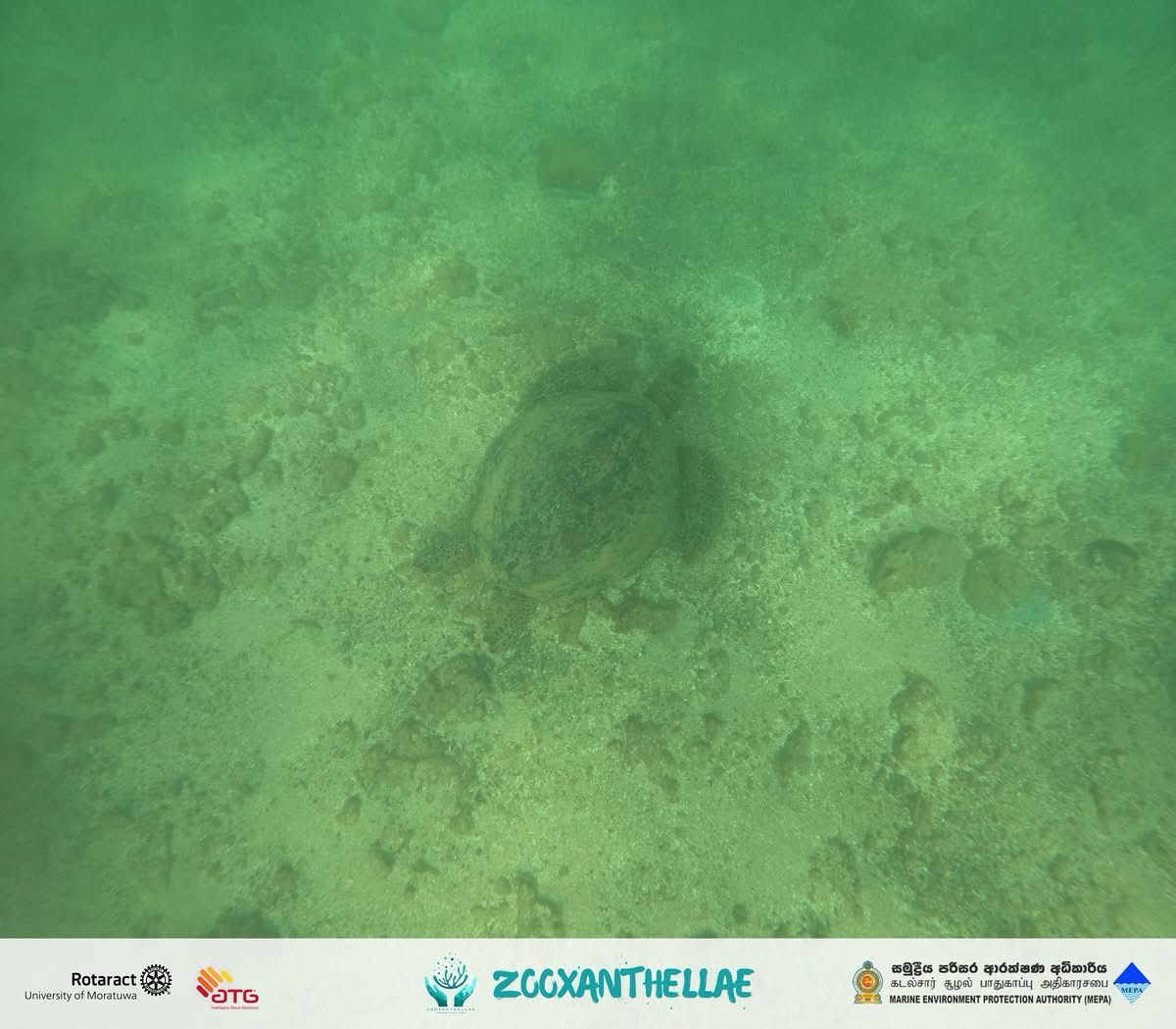
The project wouldn't have been possible without a strong team. Besides us divers, we were supported by Mr. Sandun and his partner, “Kalu” Uncle, Mrs. Chathumali, and our generous sponsor, ATG Group.
I am also incredibly grateful to Rtr. Dasuni and Rtr. Nilanga, the Directors of the Environmental Service Avenue, whose dedication, vision, and meticulous planning laid the foundation for the success of Project Zooxanthellae. Their constant guidance and unwavering support kept the entire team motivated from start to finish. I also want to extend my heartfelt thanks to the chairpersons of the project, whose tireless efforts behind the scenes ensured that every detail, from training sessions to the final underwater tasks was executed smoothly. Each person played a crucial role, from managing logistics to guiding us through every underwater step. This experience wouldn’t have been the same without their leadership, encouragement, and belief in the importance of marine conservation.
Personally, this project was a dream come true. I’ve always loved the sea and had a strong desire to dive, and Project Zooxanthellae gave me the training and chance to do so, not just for fun, but for a meaningful cause. I was thrilled from the start, but even more so when I realized I was contributing to something impactful.
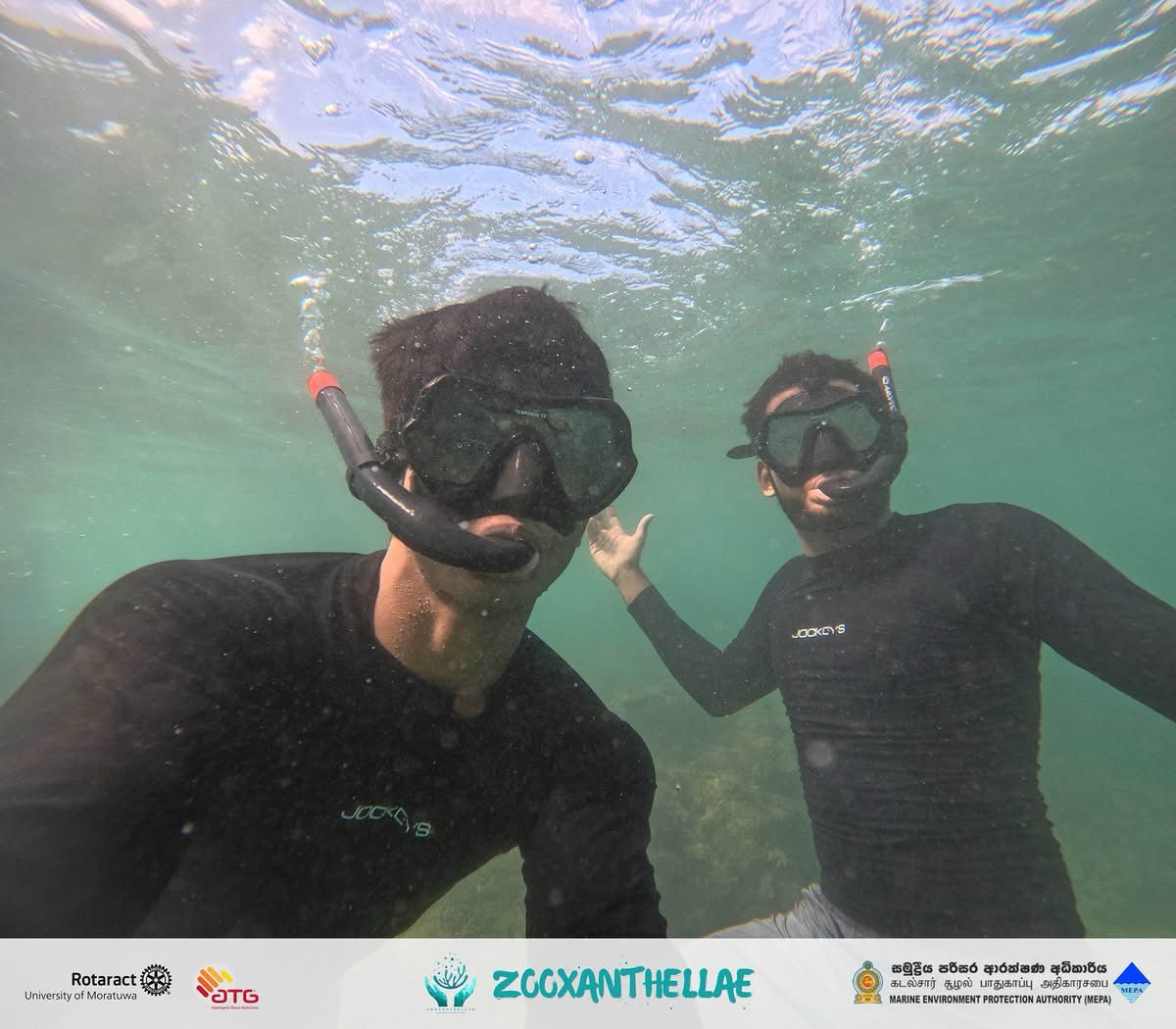
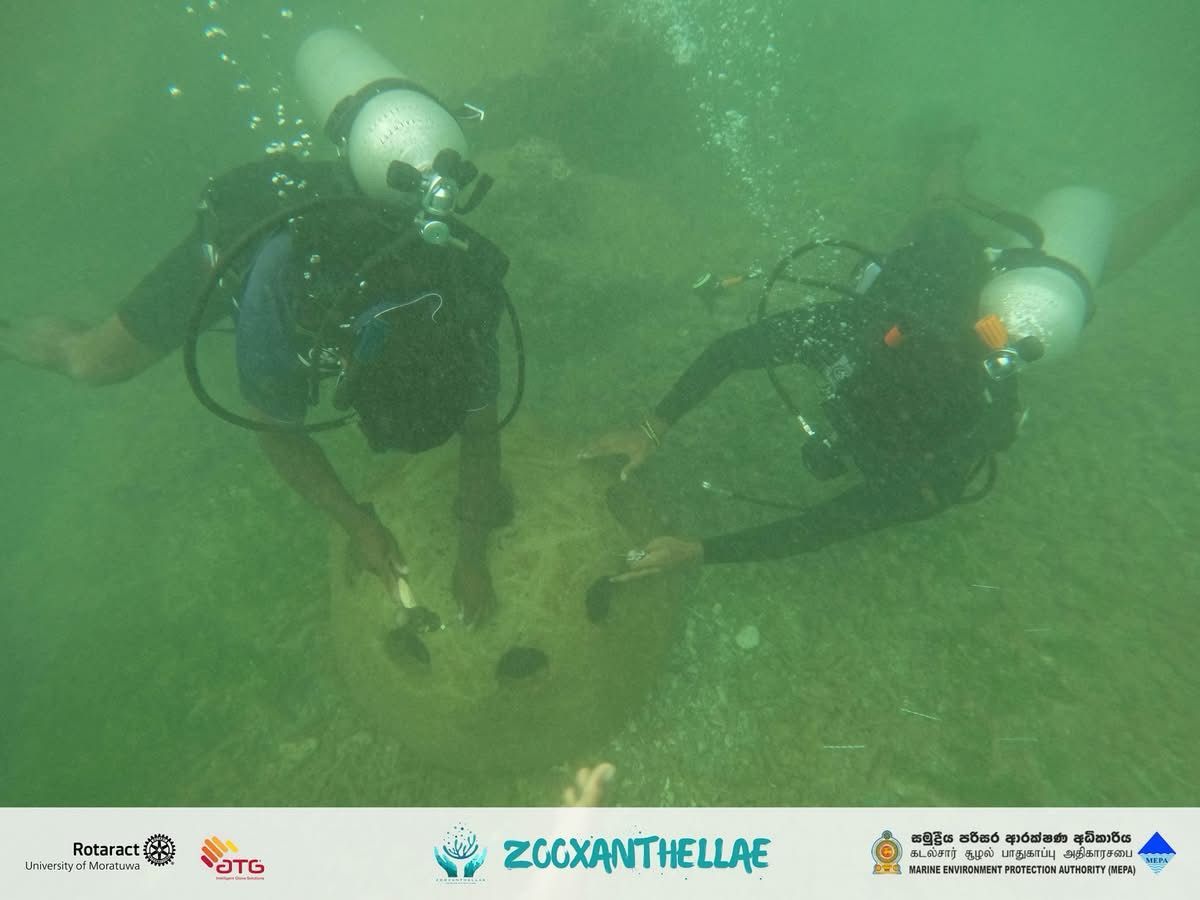
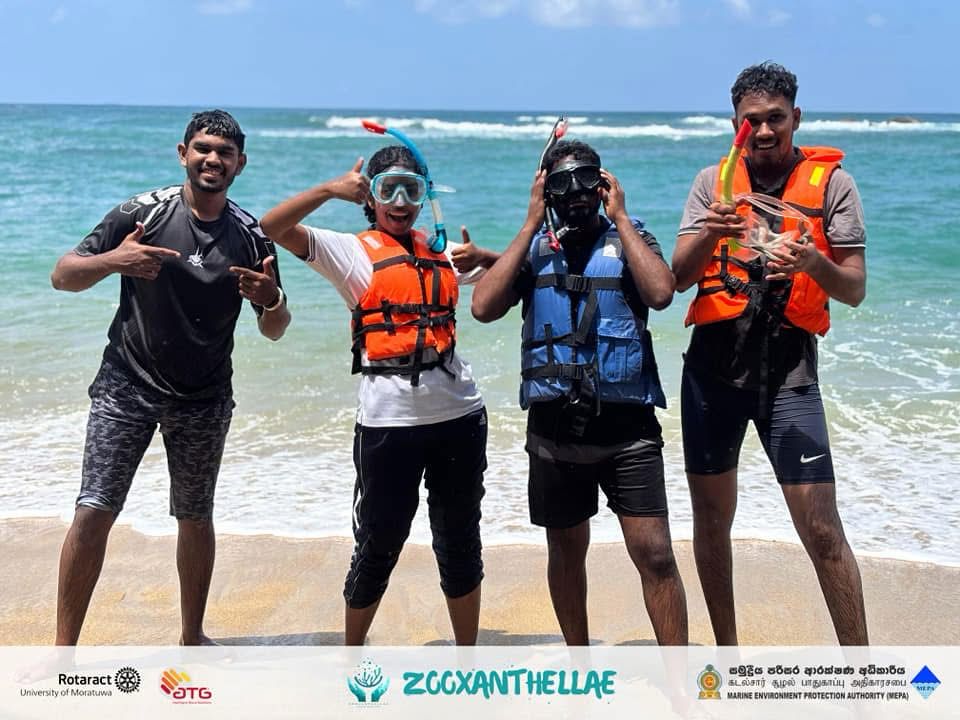
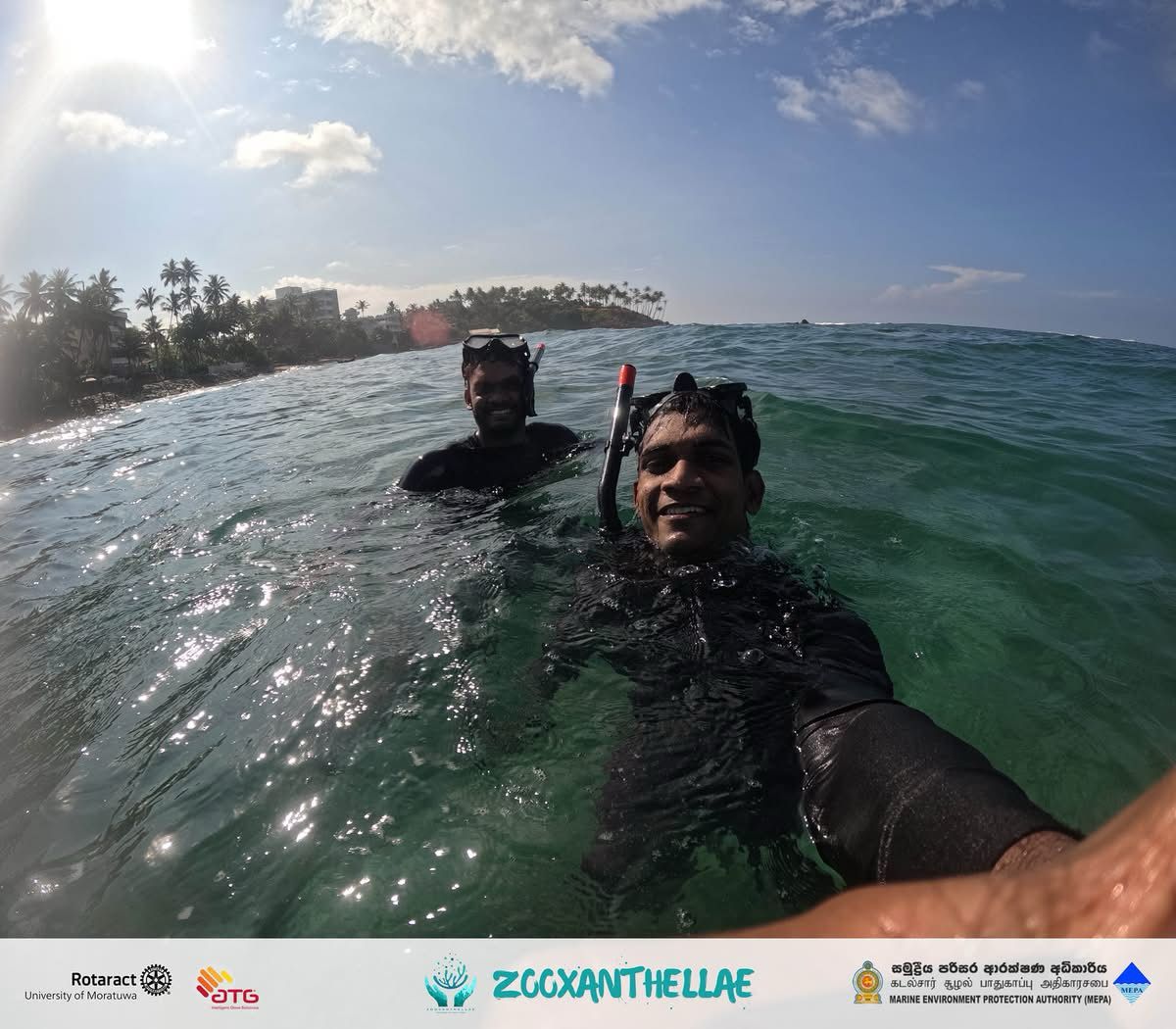
The experience itself, the lively team spirit, the blue waters of Mirissa, the shared meals, laughter, and underwater missions, was unforgettable. But beyond the memories, I walked away with a deeper appreciation for marine life and the role we play in protecting it. I also gained valuable diving skills and a newfound awareness of how fragile, yet vital coral ecosystems are to the health of our oceans.
This is just the beginning for me. I hope to continue diving and participating in conservation projects like Zooxanthellae. After all, once you’ve experienced the ocean underwater, it leaves a lasting impression and caring for it becomes a part of you.
